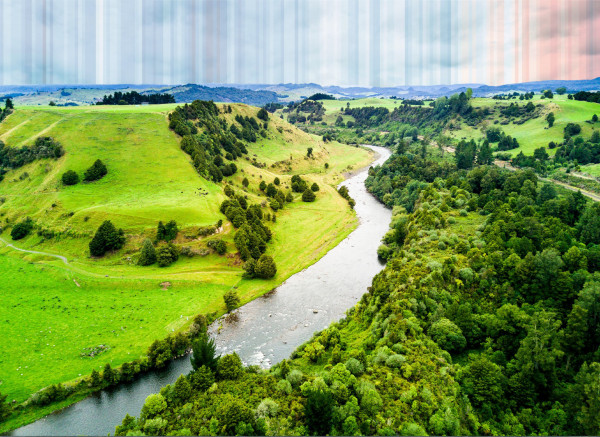
Simulation modelling to support freshwater quality improvements and greenhouse gas emissions reductions

Warming stripes overlaid on the sky show average global temperatures through time (image: Kendon Bell)
The research programme addresses challenges faced by the Aotearoa primary sector, including Māori landowners, focusing on reducing water pollution, reducing greenhouse gas emissions, adapting to climate change, and adapting to market changes, all while maintaining financial stability. The programme develops a primary-sector simulation model to help industry participants and policymakers navigate these challenges towards achieving environmental and economic targets. The programme builds upon previous work, aiming to improve an existing simulation model by adding new features aimed at providing analysis that will be of use to policymakers and landowners, including Māori. One significant goal is to examine how climate change affects land profitability, using sound scientific evidence and localised projections. The programme also plans to study processing and marketing requirements, assess the impact of price uncertainty on farmer decision-making, and employ spatial optimisation for water quality improvements. A unique objective is to understand the behavioural differences between Māori and other farmers, stemming from differing values and institutional setups. The programme aims to enrich the model to better serve Māori landowners, thereby promoting improved water quality and financial outcomes. Furthermore, the research is set to contribute significantly to the broader field of land-use modelling, by addressing the existing limitations of closed-data models, and promoting open, extendable models.
